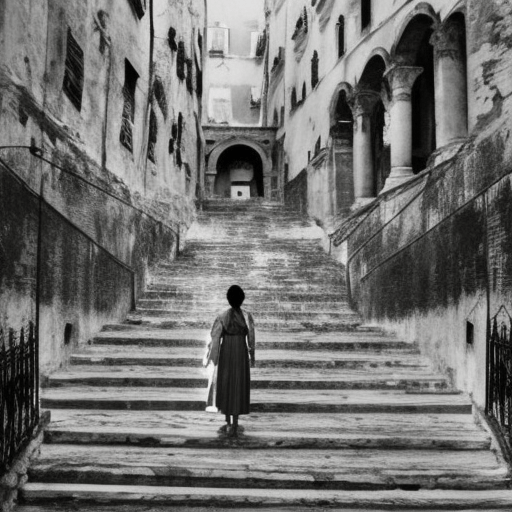Roma by Alfonso Cuarón
Summary: Roma is a visually stunning and emotionally resonant film directed by Alfonso Cuarón. Set in 1970s Mexico City, the movie follows Cleo, a young domestic worker for a middle-class family, as she navigates personal and societal challenges.
Main Cast and Crew:
- Director: Alfonso Cuarón
- Writer: Alfonso Cuarón
- Main Cast:
- Yalitza Aparicio as Cleo
- Marina de Tavira as Sofía
- Daniela Demesa as Sofi
- Marco Graf as Pepe
- Fernando Grediaga as Antonio
- Music Director: N/A
- Director of Photography: Alfonso Cuarón
- Producers: Alfonso Cuarón, Gabriela Rodriguez, Nicolás Celis
Plot:
Set against the backdrop of political and social unrest in 1970s Mexico City, Roma tells the story of Cleo, a young indigenous woman working as a live-in maid for a middle-class family. Cleo’s life is intertwined with the family she serves, particularly with the mother, Sofía, and her four children.
As Cleo navigates her daily routine, she becomes pregnant after a brief relationship with a martial arts enthusiast, Fermín. Meanwhile, Sofía’s marriage begins to crumble, and her husband, Antonio, leaves the family. Cleo and Sofía find solace in each other’s company as they face their respective challenges.
The film explores themes of class, gender, and identity, highlighting the disparities between the wealthy and the working class. Cleo’s experiences as an indigenous woman add another layer of complexity to the narrative, shedding light on the marginalization and discrimination faced by indigenous communities in Mexico.
Themes and Motifs:
Roma delves into the complexities of human relationships, emphasizing the bonds that form within a household. It explores the themes of love, sacrifice, and resilience, showcasing the strength of women in the face of adversity. The film also examines the impact of political and social upheaval on individuals and families, highlighting the turbulent times in Mexico during the 1970s.
The motif of water is prevalent throughout the movie, symbolizing both cleansing and chaos. Water serves as a metaphor for the unpredictability of life and the forces that shape our existence. The use of long takes and wide shots enhances the film’s visual storytelling, capturing the vastness and intimacy of the characters’ lives.
Reception and Legacy:
Upon its release, Roma received widespread critical acclaim for its masterful direction, stunning cinematography, and powerful performances. It won numerous awards, including three Academy Awards for Best Director, Best Cinematography, and Best Foreign Language Film. It was also nominated for Best Picture, making it the first Mexican film to receive this honor.
Roma’s impact on cinema cannot be overstated. It showcased the power of storytelling through a deeply personal and intimate lens, resonating with audiences worldwide. The film’s success paved the way for greater recognition of foreign language films and highlighted the importance of diverse voices in filmmaking.
Recommendation:
Roma is a cinematic masterpiece that should not be missed. Its breathtaking visuals, nuanced performances, and thought-provoking themes make it a must-watch for film enthusiasts. The film’s slow pace and contemplative nature may not appeal to all viewers, but those who appreciate artful storytelling will find Roma to be a deeply moving and unforgettable experience.
Memorable Quote:
“I am alone. I am surrounded by people, but I am alone.” – Cleo












